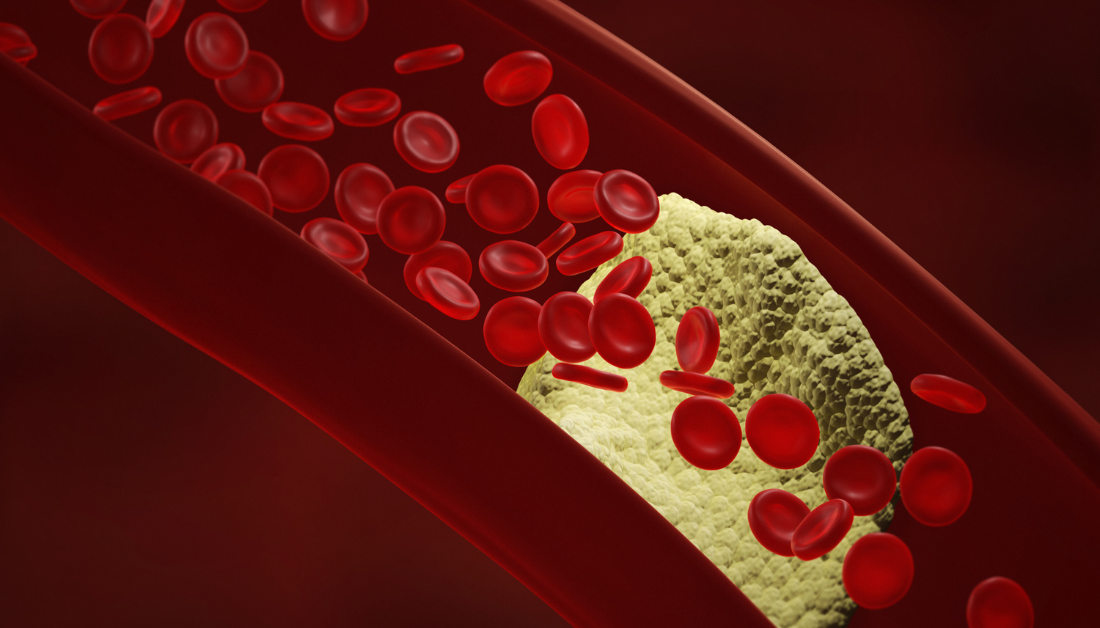

Atherosclerosis is a leading cause of cardiovascular disease and stroke. Despite medical advancements, the number of cases is always increasing. As a result, targeted novel therapeutic techniques for Atherosclerosis Treatment are more critical than ever.
Professor Christian Weber, Director of the Institute for Cardiovascular Prevention (IPEK) at the University Hospital of Munich, and Professor Donato Santovito, leader of the Translational Vascular Therapy research group at IPEK, led an international team that identified a specific microRNA molecule as a promising starting point for the investigation of new therapies. The findings have been published in the journal Science Translational Medicine.
The researchers previously demonstrated that the transmembrane protein CXCR4 plays a significant role in the development of atherosclerosis. The protein transmits signals to the cell interior. If CXCR4 is specifically silenced in arterial endothelial cells or smooth muscle cells, it results in more severe atherosclerotic lesions. At the same time, there is increased leukocyte ingress into the cell, which leads to inflammatory processes.
“It made sense, therefore, to only boost the expression of CXCR4 on the cells of the vascular wall in order to counteract the atherosclerosis,” says Santovito. “The challenge, however, is not to influence any biological processes, as the protein occurs in all cells and exercises various important functions.”
A blockade molecule interferes with the signaling pathway.
The researchers searched especially for microRNA molecules that are confined to vascular cells and are involved in the regulation of CXCR4 using databases, molecular biological screening in cell cultures, and mice models. In the form of miR-206, a candidate found only in endothelial cells and vascular smooth muscle cells, they were able to uncover a promising therapeutic starting point for the treatment of atherosclerosis. It inhibits CXCR4 expression at specific places by binding to CXCR4 gene transcripts and prevents them from being converted into protein.
The effect of miR-206 must be inhibited for therapeutic application. To that goal, the researchers created a chemical known as a target-site blocker (TSB), which specifically disrupts connections between miR-206 and CXCR4 transcripts, only increasing their expression in the appropriate cells.
The researchers were able to demonstrate the efficacy of this method in a mouse model as well as human cells in culture. Most importantly, the blocker they created prevented atherosclerosis in a mouse model.
“Eliminating miRNA-mediated gene suppression represents an attractive, feasible, and cost-effective method for fine-tuning gene expression at the cell-specific level,” says LMU researcher Weber.Tissue-specific miRNA regulatory pathways are common and are thought to be a promising therapeutic target for a wide range of illnesses.
The researchers intend to test their findings in preclinical studies using larger animal models as part of the German Cardiovascular Research Center (DZHK) and the Cluster for Nucleic Acid Therapeutics Munich (CNATM).
For more information: Targeting a cell-specific microRNA repressor of CXCR4 ameliorates atherosclerosis, Science Translational Medicine (2023).
more recommended stories
 High-Fat Diets Cause Damage to Metabolic Health
High-Fat Diets Cause Damage to Metabolic HealthKey Points Takeaways High-fat and ketogenic.
 Acute Ischemic Stroke: New Evidence for Neuroprotection
Acute Ischemic Stroke: New Evidence for NeuroprotectionKey Highlights A Phase III clinical.
 Statins Rarely Cause Side Effects, Large Trials Show
Statins Rarely Cause Side Effects, Large Trials ShowKey Points at a Glance Large.
 Anxiety Reduction and Emotional Support on Social Media
Anxiety Reduction and Emotional Support on Social MediaKey Summary Anxiety commonly begins in.
 Liquid Biopsy Measures Epigenetic Instability in Cancer
Liquid Biopsy Measures Epigenetic Instability in CancerKey Takeaways Johns Hopkins researchers developed.
 Human Antibody Drug Response Prediction Gets an Upgrade
Human Antibody Drug Response Prediction Gets an UpgradeKey Takeaways A new humanized antibody.
 Pancreatic Cancer Research: Triple-Drug Therapy Success
Pancreatic Cancer Research: Triple-Drug Therapy SuccessKey Summary Spanish researchers report complete.
 Immune Cell Epigenome Links Genetics and Life Experience
Immune Cell Epigenome Links Genetics and Life ExperienceKey Takeaway Summary Immune cell responses.
 Dietary Melatonin Linked to Depression Risk: New Study
Dietary Melatonin Linked to Depression Risk: New StudyKey Summary Cross-sectional analysis of 8,320.
 Chronic Pain Linked to CGIC Brain Circuit, Study Finds
Chronic Pain Linked to CGIC Brain Circuit, Study FindsKey Takeaways University of Colorado Boulder.

Leave a Comment